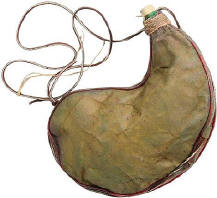Jude’s letter is addressed to the BELOVED. Not to unbelievers.
1 Jude, a servant of Jesus Christ and brother of James, To those who are called, beloved in God the Father and kept for Jesus Christ:
He has written because there is a problem among the true believers of God. Some have strayed from truth. There are three different errors that are exposed.
Woe to them! For they walk in the way of Cain, and abandon themselves for the sake of gain to Balaam’s error, and perish in Korah’s rebellion. Jude 1:11
Now we must figure out from the Old Testament just what these three men represent.
The Way of Cain
The way of Cain is that which seeks to kill truth. He thought to gain a worldly advantage. Having failed at that he killed what he viewed as his competition. He thought little of his own soul or of God’s future world. The next life meant nothing to him. He is the ultimate of rebellion as represented in the Word. Cain was the first atheist.
. . . and not be like Cain who was of the evil one and murdered his brother. And why did he murder him? Because his own deeds were evil and his brother’s righteous. 1John 3:12
Balaam’s Error
Balaams error is one of greed. For gain, Balaam taught the Moabites to corrupt Israel’s faith.
But I have a few things against you: you have some there who hold the teaching of Balaam, who taught Balak to put a stumbling block before the sons of Israel, that they might eat food sacrificed to idols and practice immorality. Rev. 2:14
When we consider church history we see that all the corruption in dogma and doctrine were at their root done for gain. He who has the biggest congregation gets paid the most. So give the people what they want. Don’t confront sin or error. That would bring in less people and therefore less money.

The Punishment of Korah and the Stoning of Moses and Aaron. Fresco by Sandro Botticelli in the Sistine Chapel
Korah’s Rebellion
Numbers 16 is where we find the tale of Korah’s rebellion. Korah thought that he was just as good as Moses and Aaron. Korah claimed that all were holy, or set apart for God.
. . . and they assembled themselves together against Moses and against Aaron, and said to them, “You have gone too far! For all the congregation are holy, every one of them, and the LORD is among them; why then do you exalt yourselves above the assembly of the LORD?” Num. 16:3
This is where the inherited churches have brought us. They are at odds with Moses. It is as if Moses and Aaron worshiped another god. As Korah they think that they are just as good, if not better than some Jew thousands of years ago.
Because Jesus/Yeshua is much more worthy than Moses, the church has decided that they do not need Moses at all.
12 These are blemishes on your love feasts, as they boldly carouse together, looking after themselves; waterless clouds, carried along by winds; fruitless trees in late autumn, twice dead, uprooted; 13 wild waves of the sea, casting up the foam of their own shame; wandering stars for whom the nether gloom of darkness has been reserved for ever.
Christianity was never suppose to throw the law away. They were suppose to improve it by spiritualizing the sacrifice. They would then be able to leave in environs of Jerusalem and GO into the whole world.
Do we then overthrow the law by this faith? By no means! On the contrary, we uphold the law. Rom. 3:31





